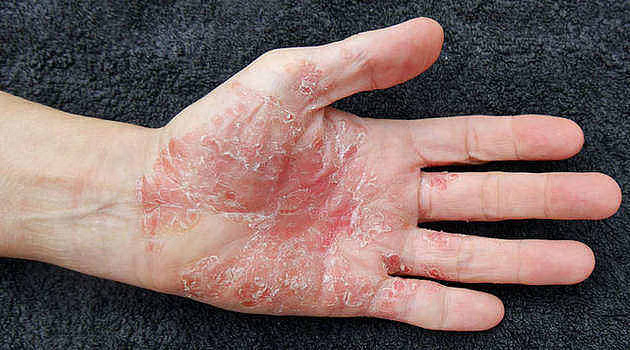Psoriasis is a chronic autoimmune skin condition characterized by the rapid growth of skin cells, leading to the development of thick, red, scaly patches known as plaques. These plaques can appear anywhere on the body but are most commonly found on the elbows, knees, scalp, and lower back. At our dermatologist’s office, we specialize in the diagnosis and management of psoriasis, offering comprehensive care to help patients find relief and improve their quality of life.
Causes and Triggers: The exact cause of psoriasis is not fully understood, but it is believed to involve a combination of genetic and environmental factors. In psoriasis, the immune system mistakenly attacks healthy skin cells, causing them to produce new cells more rapidly than normal. This results in the buildup of thick, scaly patches characteristic of the condition. Common triggers for psoriasis flare-ups include stress, certain medications, infections, injury to the skin, and changes in weather or climate.
Symptoms: Psoriasis symptoms can vary in severity and may include:
- Red, inflamed patches of skin covered with silvery scales
- Itching, burning, or soreness in affected areas
- Thickened or pitted nails
- Dry, cracked skin that may bleed or become painful
- Joint pain or swelling (in some cases of psoriatic arthritis)
These symptoms can have a significant impact on a person’s physical and emotional well-being, affecting daily activities and self-esteem.
Treatment Options: While there is no cure for psoriasis, various treatment options can help manage symptoms and improve quality of life. These may include:
- Topical Treatments: Prescription or over-the-counter creams, ointments, and shampoos containing corticosteroids, vitamin D analogs, retinoids, or coal tar can help reduce inflammation and slow the growth of skin cells.
- Phototherapy: Treatment with ultraviolet (UV) light under medical supervision can help slow skin cell turnover and reduce inflammation, improving psoriasis symptoms.
- Systemic Medications: Oral or injected medications such as methotrexate, cyclosporine, biologics, or oral retinoids may be prescribed for severe or resistant cases of psoriasis.
- Lifestyle Modifications: Avoiding triggers such as stress, smoking, and excessive alcohol consumption, maintaining a healthy diet, managing stress through relaxation techniques, and keeping skin moisturized can help reduce flare-ups and improve overall skin health.
Living with Psoriasis: Living with psoriasis can be challenging, but with the right treatment and support, many individuals can effectively manage their symptoms and lead fulfilling lives. Our dermatologist’s office is dedicated to providing compassionate care and personalized treatment plans tailored to each patient’s unique needs and concerns. Contact us today to schedule a consultation and take the first step toward managing your psoriasis and achieving healthier, clearer skin.


